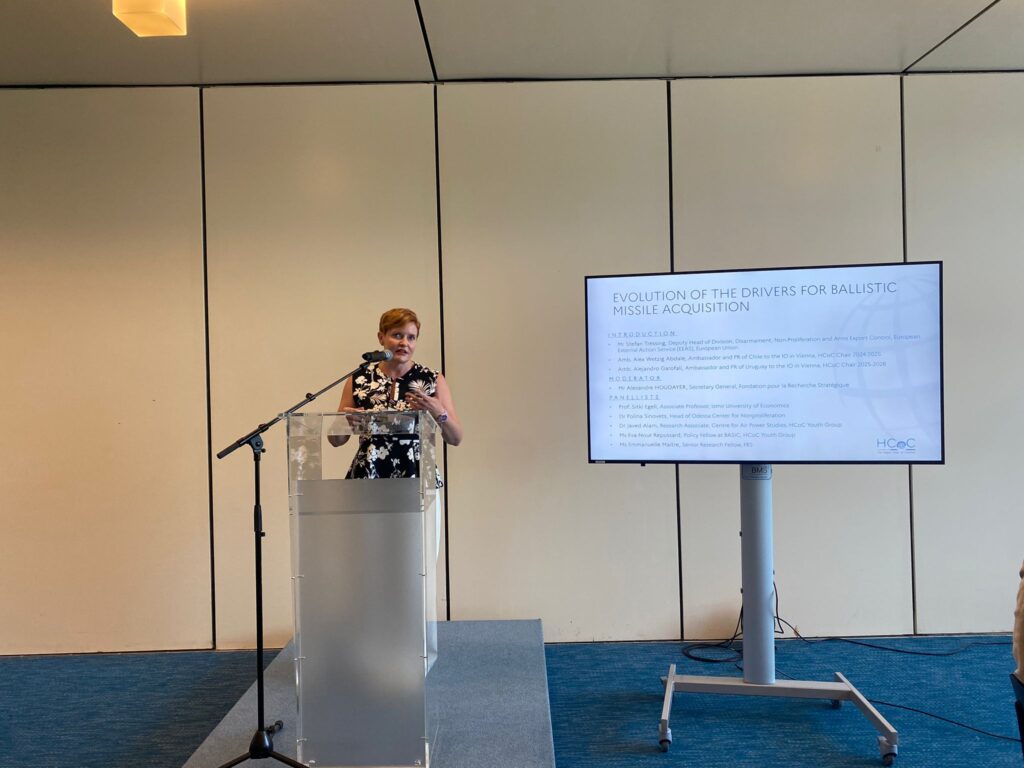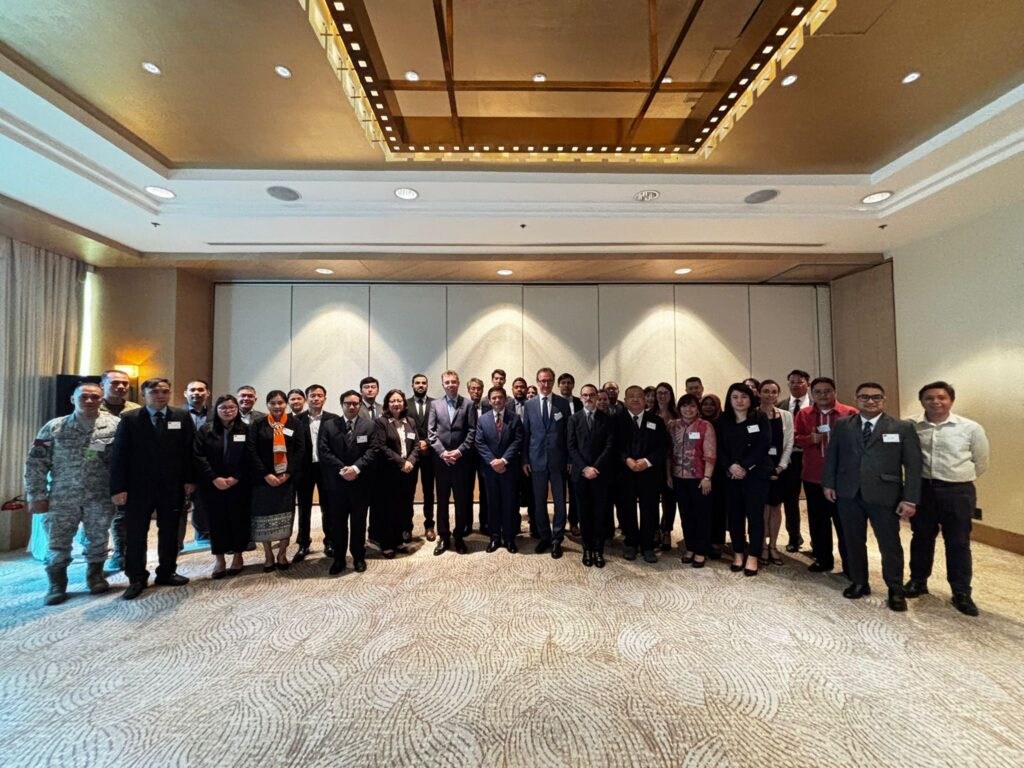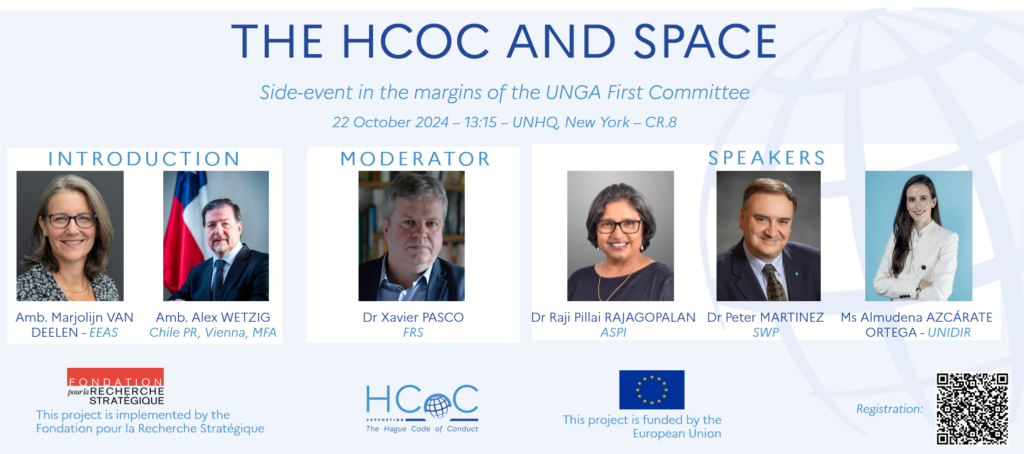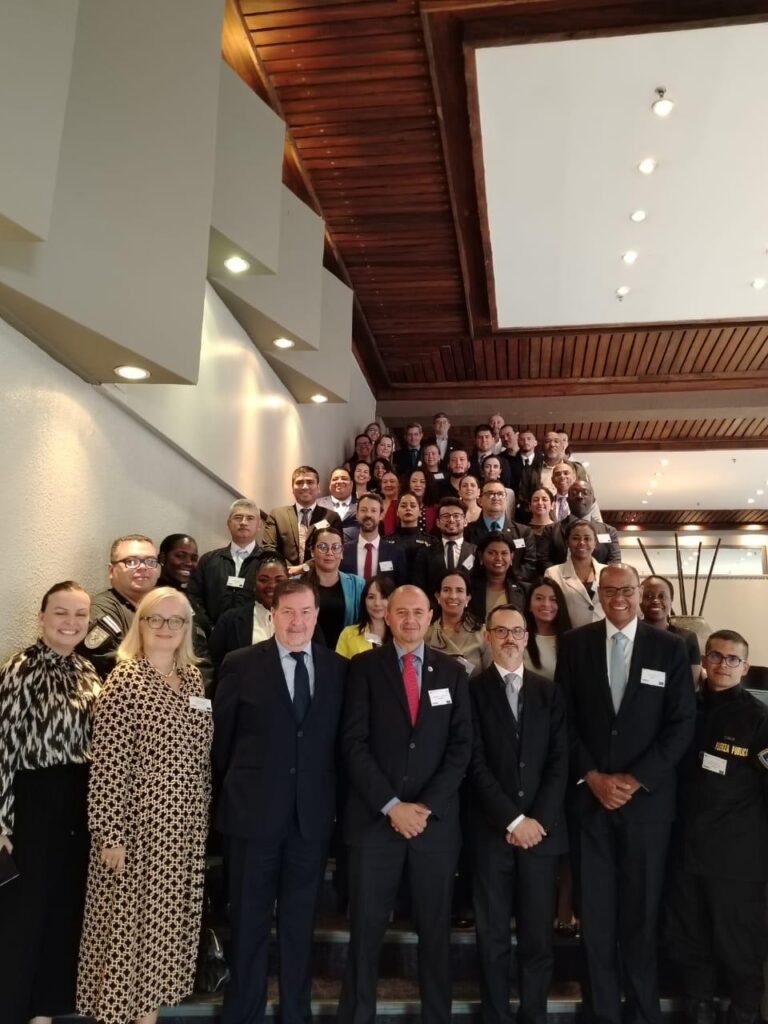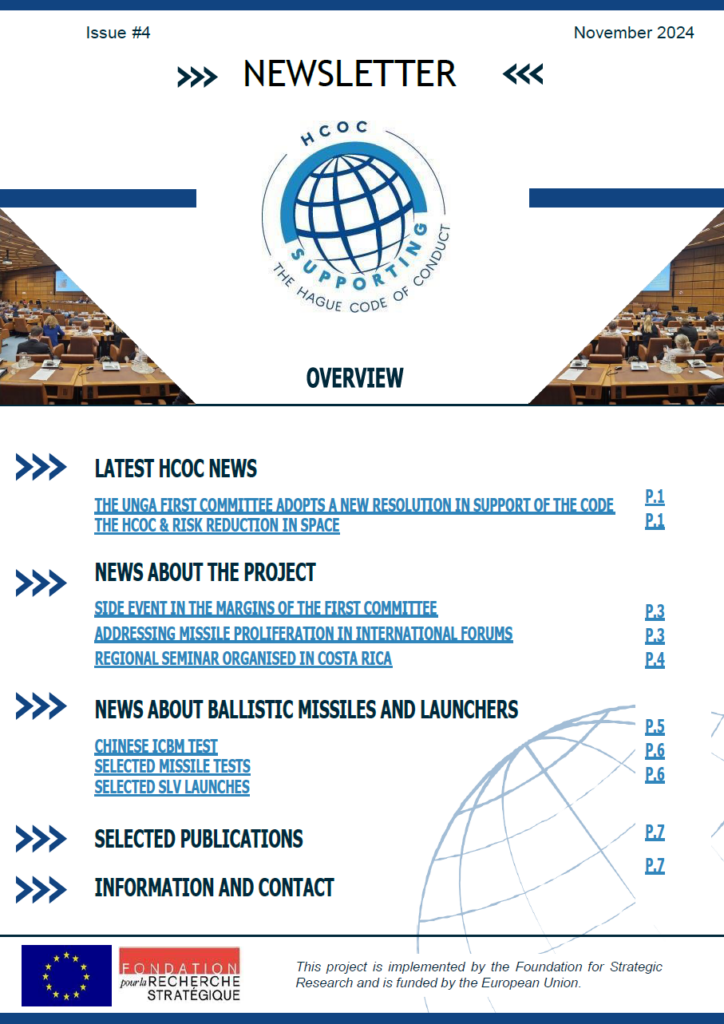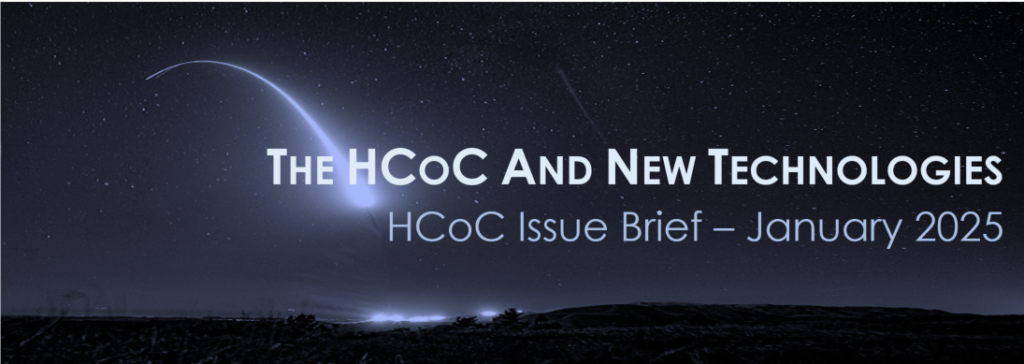ABOUT
FRS is implementing an EU-funded project on the HCoC and ballistic missile proliferation. Find out more here
Latest events
On 4 June 2025, FRS organised a side-event in the margins of the HCoC Annual Regular Meeting in Vienna. The side-event allowed participants to reflect on the evolving drivers of ballistic missile acquisition and development.
On 22-23 January 2025, the FRS in collaboration with the government of the Philippines hosted a regional seminar dedicated to Asia-Pacific. More than 50 participants representing 12 countries took part to this event.
On 22 October 2024, the FRS will hold a side-event in the margins of the UN General Assembly First Committee, which will explore the links between the Hague Code of Conduct and space security.
Costa Rica hosted a regional seminar on 2-3 July 2024 in San José dedicated to Latin American and Caribbean States. The HCoC Chair, Chile, was in particular represented to the meeting, as well as around 20 regional states.
LATEST PUBLICATIONS
Newsletter #5 – June 2025
Read news of the Code, updates on our recent activities and latest information about ballistic missile tests and space launches.
The Growing Appeal of Missiles: Current Drivers Behind Ballistic Missile Acquisition and Development
This paper recalls the state of ballistic missile proliferation at the time of the adoption of the Code, before delving into the genesis of the Code and especially the various reports and meetings that promoted the adoption of a supply-side multilateral instrument. It describes the conferences and diplomatic efforts that led to the Code in 2002. It also explains why the Code ended up the way it is today with modest ambitions but concrete outcomes.
The HCoC and New Technologies
In the field of arms control and non-proliferation, ‘emerging technologies’ are commonly perceived as creating potential threats that may make it even more difficult to prevent arms racing and regulate global competition. Given the dual-nature of the Hague Code of Conduct, space developments must also be considered to assess the adaptability of the regime to new technologies.
News about the Code
Uruguay will chair the HCoC for 2025-2026
On 4-5 June 2025, Chile passed the Chairmanship of The Hague Code of Conduct to Uruguay during the 24th Annual Regular Meeting of subscribing states in Vienna.
Chile is appointed HCoC Chair for 2023-2024
On April 11-12, Chile assumed the rotating Chairmanship of The Hague Code of Conduct during the 23rd Annual Regular Meeting of subscribing states in Vienna.
Qatar notifies its subscription to the HCoC
On 11 March 2024, Qatar became the 145th subscribing state to the Hague Code of Conduct.
São Tomé and Príncipe becomes the 144th subscribing state to the HCoC
On 7 August 2023, São Tomé and Príncipe became the 144th subscribing state to the Hague Code of Conduct.
